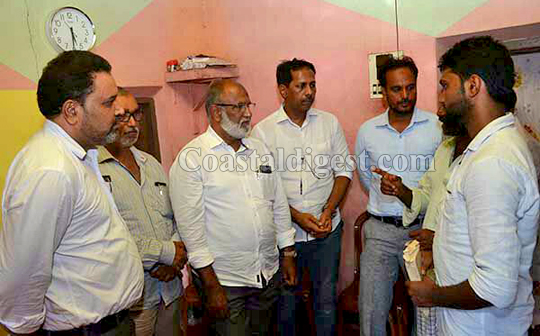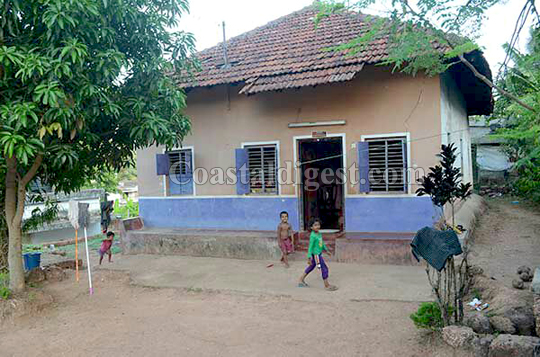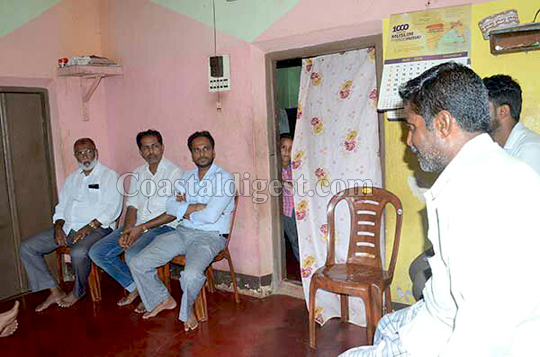Mangaluru, May 24: Dakshina Kannada Muslim Association, a newly formed group of Muslim philanthropists, has donated Rs 2 lakh to the family members of Mohammed Saifan, who was murdered last month by communal hate-mongers in Thokkottu near Ullal.

The DKMA, which came into being under the leadership of Dakshina Kannada Wakf Advisory Committee President SM Rasheed Haji on May 2 with the sole intention of helping bereaved families in case of the sudden demises of their breadwinners, had pledged on its inaugural day to assist the family of Saifan.
Saifan, who was attacked with lethal weapons by the miscreants on April 26 died at a hospital on April 30. He was a breadwinner of his large family.
On Tuesday, DKMA president Rasheed Haji and team visited the house of late Saifan in Chembugudde near Thokkottu and handed over Rs 2 lakh to his family. DKMA general secretary Aboobakar, treasurer BS Basheer, organising secretary SM Farooq and joint secretary Rafeeq Master were part of the team.
Also Read:
Ullal stabbings: Muslim youth succumbs to death in hospital
DK Muslim Association' launched to help bereaved Muslim families







Comments
Well educated CHEDDIS.
eagerly waiting for at least few words..
DKMA has done outstanding job ....
Whose family is the next lucky one to get Rs two lakhs.does any non muslim family deserve to be included in the list. Or being Kafir they are not eligible?.
Really Great work May Allah help us to join hand to such a organization (its really needed) and as well as need to help those who injured
good work by DKMA
Mashaallah\\" great begining, proud to be a part of dmka"
Real impact of KKMA-Karnataka
Well done , DKMA, Also i thank PFI ( Popular front of india) Who are actually the ones who initiated such charity and now being followed by community. When it comes to Unity and Helping Hands PFI Has always been a example for Us.
Such kind of activity in community is a good sign. A similar organisation is needed for Udupi district too.
Masha Allah. a noble gesture by DKMA. Keep it up. you won our hearts within a few days after formation.
Add new comment